Colorado State University (CSU) students are leading efforts to reduce clothing consumption.
Given today’s hyper-consumerist culture, it’s clear why the fashion industry is one of the largest polluters globally. It’s easier and faster than ever to manufacture, purchase, use and discard clothing. While this comes at a low cost to consumers, our planet pays the price. Fast fashion is unsustainable for the environment and frequently disregards ethical standards regarding worker welfare and compensation.
READ: OPINION: What Happened to Fashion Rules?
While CSU has long been recognized as a top performer in sustainability, its students are more determined than ever to slow fast fashion.
From clothing swaps to mending workshops, different organizations and groups on campus are hosting events designed to reduce clothing consumption and promote sustainable fashion practices.
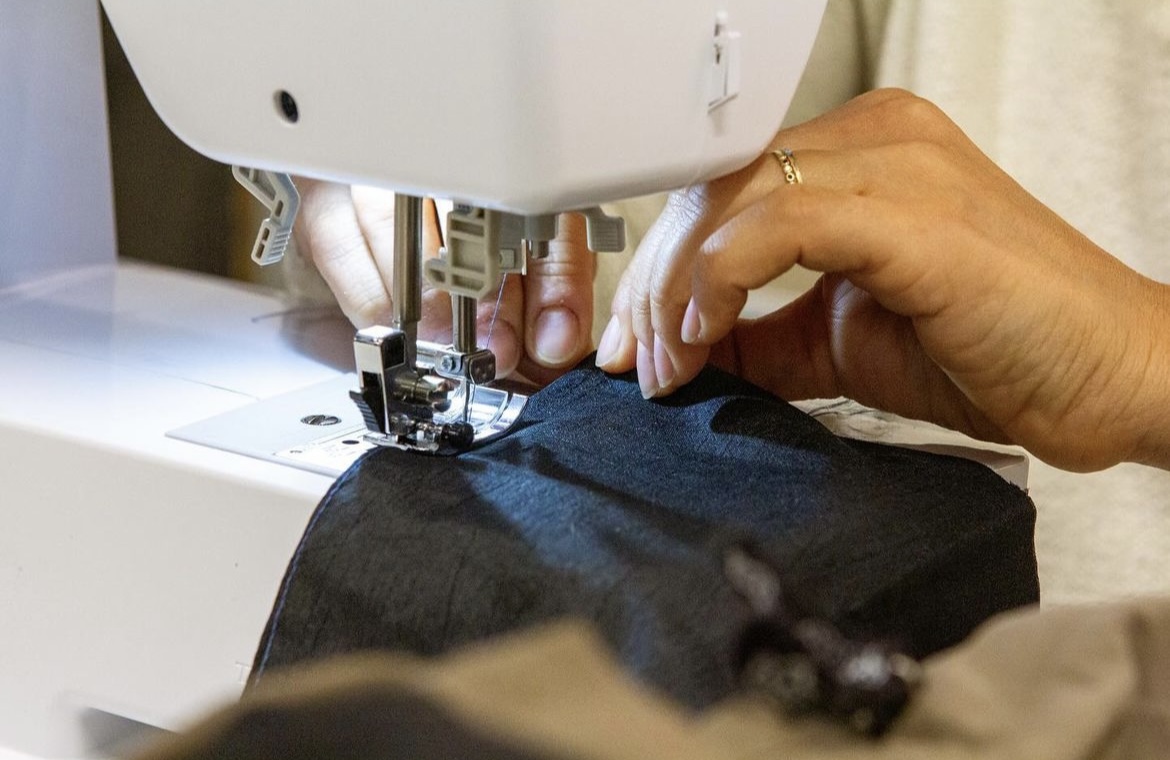
Making Fashion Circular
CSU students are putting an end to fast fashion on campus.
They believe that the future of fashion is circular, a closed-loop system that minimizes waste and maximizes the lifespan of clothing. This contrasts with the current linear fashion cycle, which prioritizes overproduction and overconsumption.
“Fashion is an integral part of everyone’s life. It’s a sector of sustainability that everyone will run into, whether or not they’re making better actions. It’s important that we work to grow a community in which people are concerned and make better habits to restore their own clothing and to promote a more circular approach to it,” said Sophia Richter, coordinator of The Patchwork Initiative (TPI). “No matter what, we all wear clothes. If we’re promoting it [circular fashion], it’s another way to make an impact on our planet and community.”
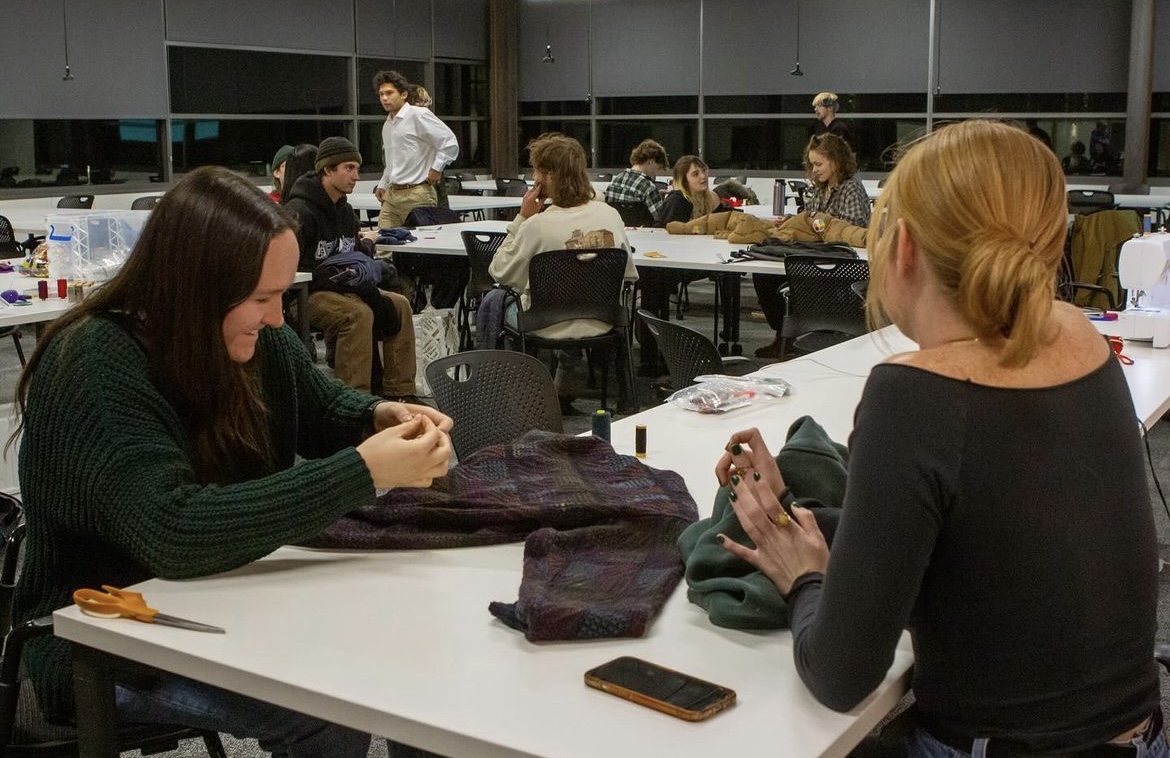
One way CSU students are fighting linear fashion is by hosting clothing swaps, something TPI often does.
TPI is a student-led clothing sustainability project supported by the School of Global Environmental Sustainability’s Student Sustainability Center (SSC), the Department of Design and Merchandising (DM), and the Avenir Museum of Design and Merchandising, with grant support from the President’s Sustainability Commission.
Designed with the goals of reducing clothing consumption and promoting clothing restoration, TPI was started in 2022 by the SSC’s previous director, Sam Moccia. It is now directed by Reaghan Fields and sponsored by DM associate professor Sonali Diddi.
At TPI’s clothing swaps, students exchange rather than discard unwanted clothing. In this way, the life of garments is extended beyond a single owner’s use.
Clothing swaps have united multiple fashion and sustainability groups, as TPI and SSC have partnered with Defend Our Future CSU, CSU Fitted, Zero Waste Team and Eco Leaders of Aggie Village, to name a few.
Throughout the school year, TPI hosts various apparel repair workshops, social events and educational opportunities. This semester, the group has planned a fashion documentary screening, mending and upcycling workshop, professional clothing swap, and makers market.

Richter, a freshman majoring in Human Dimensions of Natural Resources, is also an Eco Leader at CSU.
The Eco Leaders Peer Education Program is a group of residential students who serve as peer educators to raise awareness of sustainability initiatives and encourage environmentally responsible behavior. In the Spring semester, Eco Leaders complete independent projects aimed at improving sustainability efforts.
For Richter’s Eco Leader project, she is partnering with TPI to create a permanent thrift store on campus. The project is in its beginning stages, focused on creating infrastructure for the thrift store.
“We are currently constructing proposal plans, gaining insight from other universities that have implemented a thrift store, and identifying options for funding, space, and other logistics for this project,” Richter said.
Whether it’s via clothing swap or thrift shop, CSU students are finding ways to empty and fill their closets sustainably.
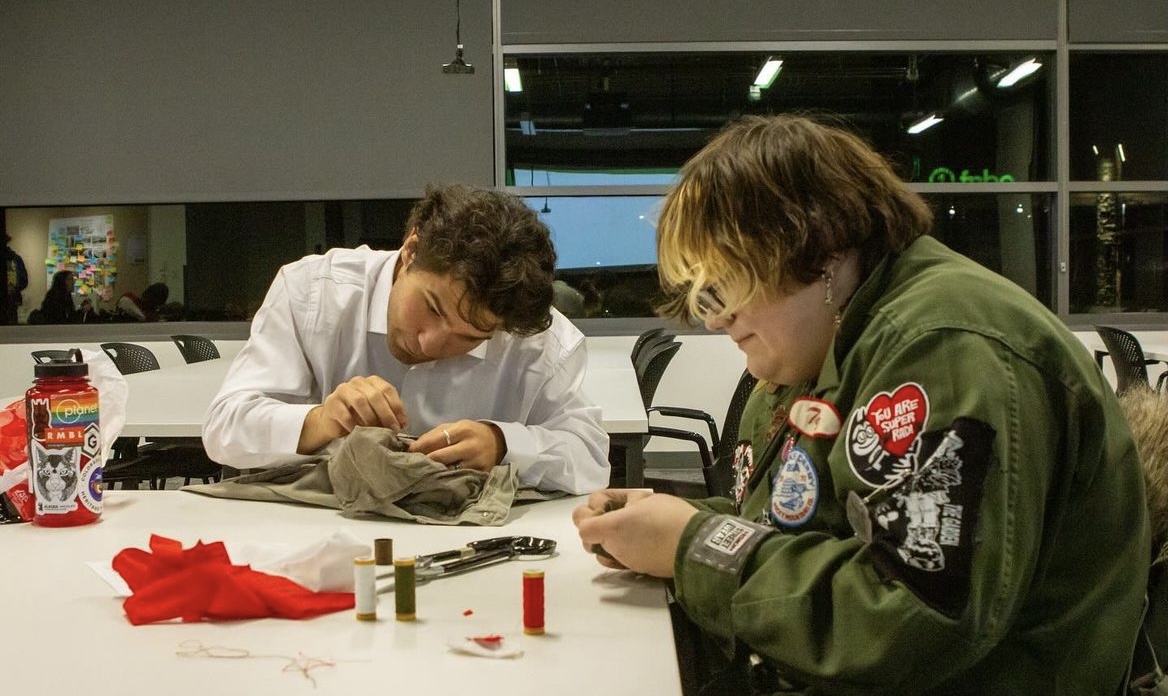
Mending Clothes
As home economics education dwindles in schools and communities, fewer individuals possess the skills to restore clothes. Various CSU organizations and departments aim to change this. They are keeping fast fashion out of landfills by teaching students how to make and mend their wardrobes.
The Avenir Museum of Design and Merchandising, which is CSU’s historic apparel and textiles collection, has hosted monthly Make & Mend events open to students and the Fort Collins community since July 2023 “to provide an opportunity for people to come together and learn from each other about the process of working with textiles with an emphasis on mending,” according to Education Programs Coordinator Sarah Lillis.
After seeing statistics surrounding the textile industry’s negative impact on the environment, Lillis knew she had to do something about it.
“I was fortunate enough to have a family that insisted I learn how to sew, how to mend, just some of the basics. Not everybody’s had access to that,” she said. “Even something small like putting a button back on can make a huge difference. I want to provide access to folks who never had the opportunity to learn those basic life skills or learned them long ago and have forgotten them from disuse.”
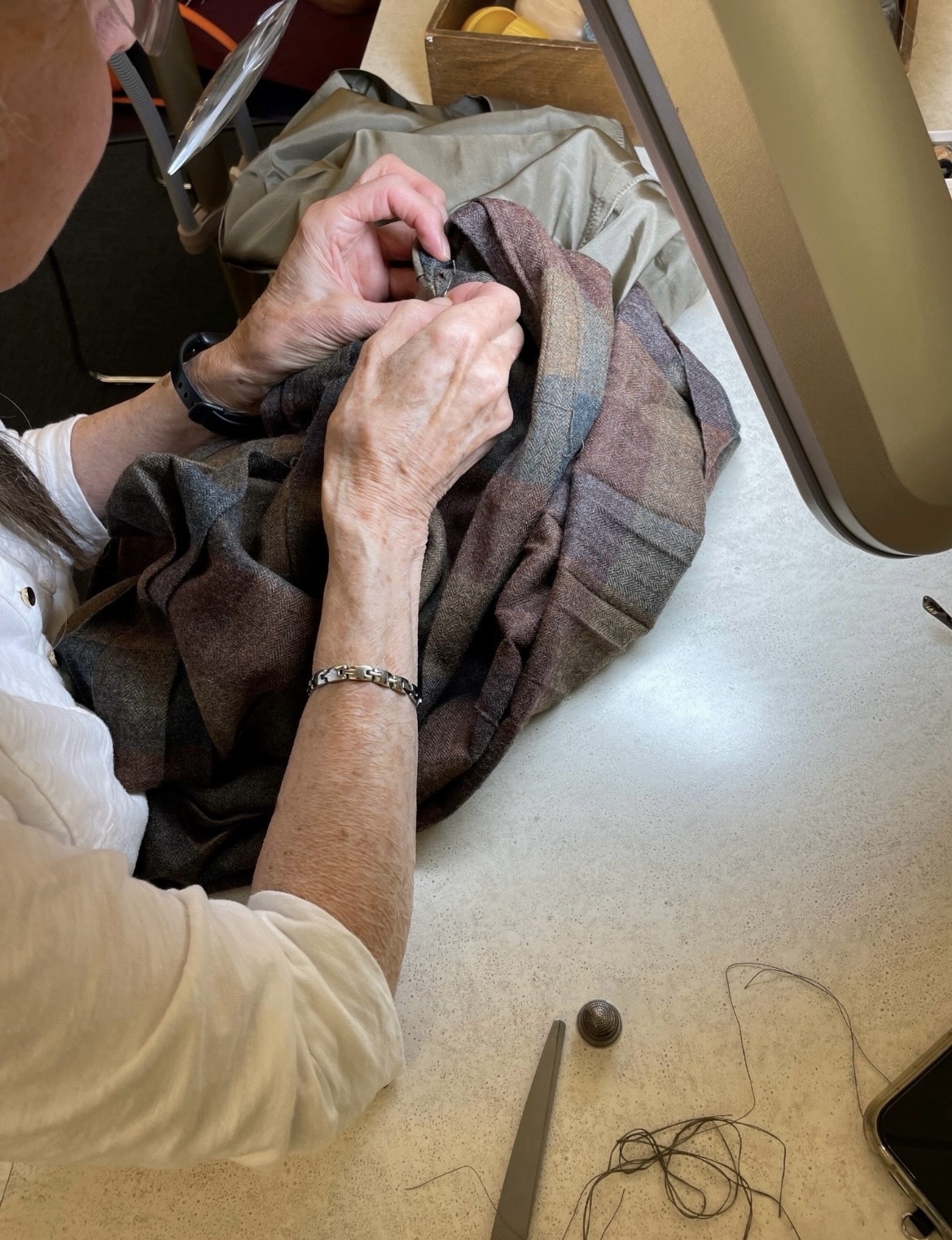
From hemming pants to performing stuffed animal surgery, Lillis has seen it all at the Make & Mend events. Participants, young and old, come to work on an array of projects sharing their knowledge and experience.
“It’s really quite a wide spectrum of projects and different people with different interests when it comes to textiles,” she said.
The museum provides basic supplies, such as sewing machines, irons, darning eggs, fabrics, zippers, cutting mats, scissors, needles, thread, and more. Whether you need help learning how to sew or working through a pattern, mentors are available to teach the ins and outs of clothing repair and textile upcycling.
Community learning is especially encouraged.
“As much as they’re learning from museum staff or volunteers, they’re learning from each other,” Lillis said.
Similarly, the Zero Waste Team (ZWT) runs clothing repairs during monthly mending meetings.

Through outreach, education and events, this student-led group sporting neon yellow safety vests spreads knowledge about proper waste management practices to create a culture of zero waste.
“We’re always the ones who have our gloves on, getting our hands dirty,” said Financial Officer Levi Vaughan.
Whether they’re sorting trash at athletic games or rescuing food from landfills, ZWT members are combating waste production. Mending meetings is one way they do so.
“We encourage people all around campus to bring any of their gear,” Vaughan said. “I remember my freshman year teaching friends how to patch up their pants and them coming up to me at the climbing gym a few weeks later showing me all of the things they’ve mended since then.”
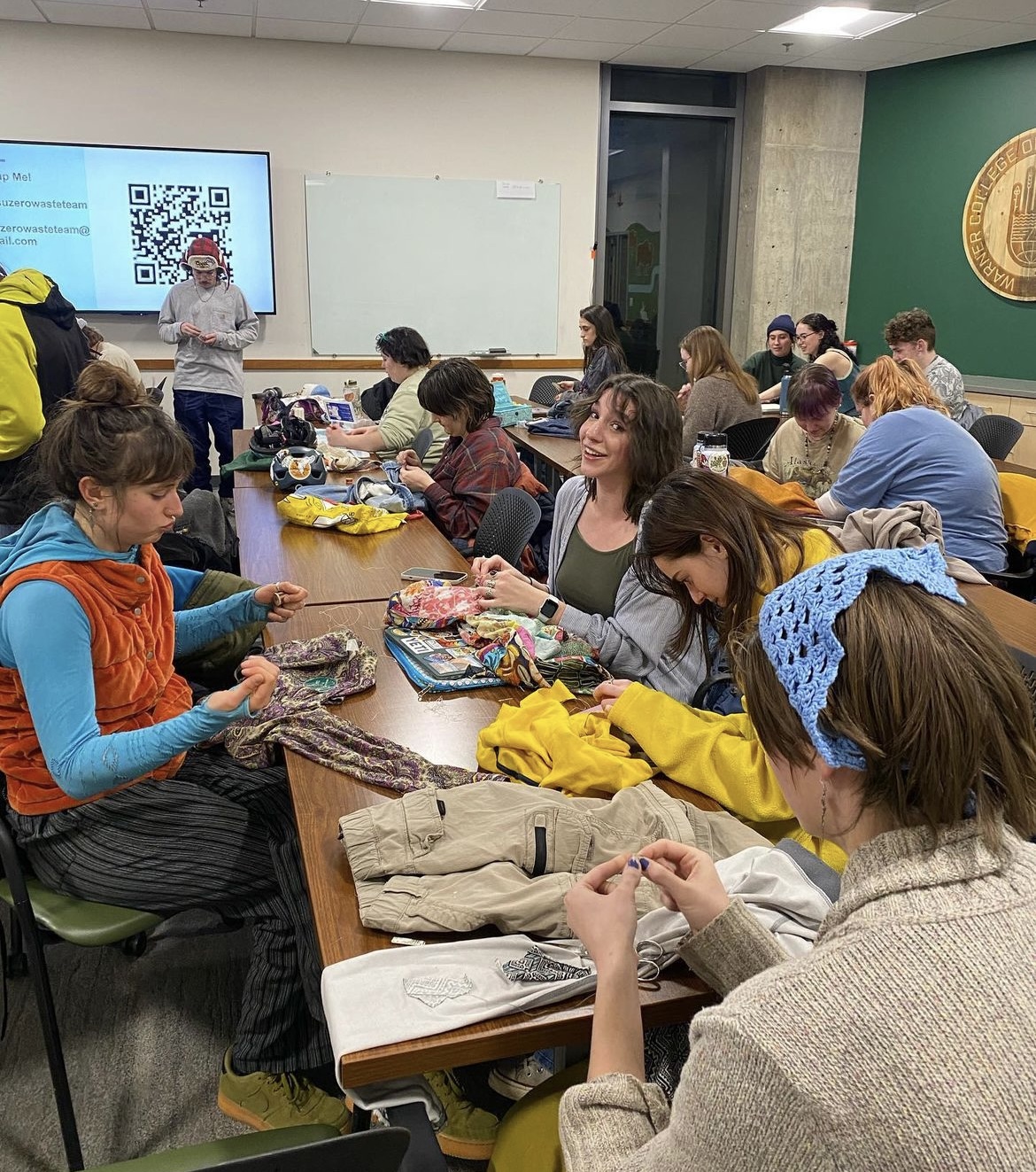
Trends in fashion change rapidly on college campuses. Consequently, students often discard their clothing after minimal use and impulse buy new outfits, which significantly contributes to textile waste. To stop this cycle, ZWT encourages their peers to give new life to old pieces.
“We’ve had people mend everything from sheets and pillowcases leaking little bits of fuzz, to pants and hats. One of our members used an old pair of pants to make an entire hat from scratch. It was so cool. People get creative and make it into a fun event,” said Vaughan, who once embroidered mountains on his overalls pocket during a mending meeting.
ZWT additionally hosts semesterly clothing swaps.
The team brings any excess clothes to local mutual aid groups Clothe The People and Food Not Bombs to distribute to unhoused neighbors and others who are in need.
“It’s really cool to know that an item is guaranteed a new life by someone who’s really excited for it and really needs it,” Vaughan said.
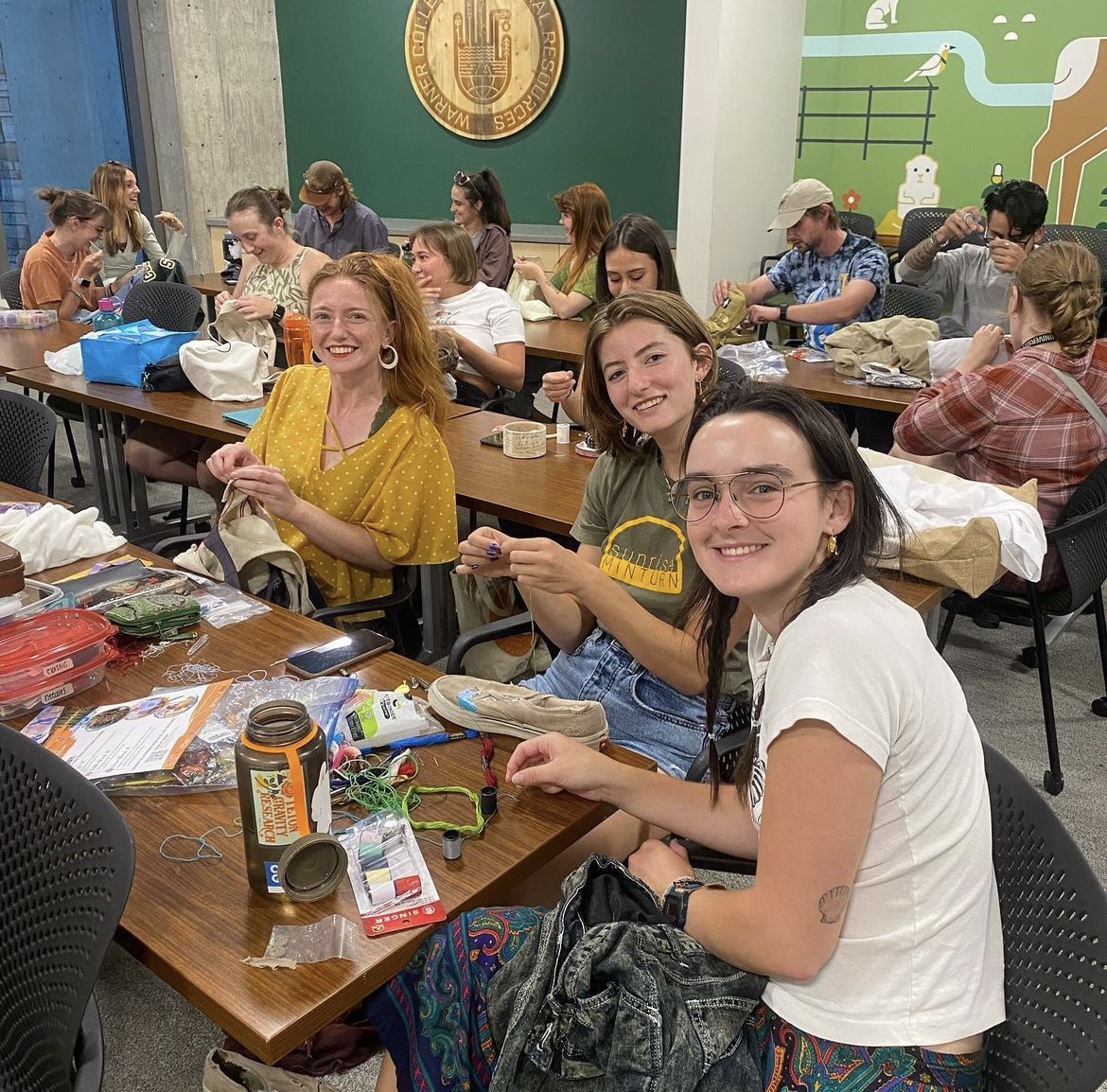
Other groups at CSU, such as CSU Fashion Group International, CSU Fashion Show, CSU Career Center, Women’s Outdoor Leadership Initiative at CSU and CSU Surplus Property, have done similar things intersecting sustainability and fashion. While making friends and building community, students are learning sustainable fashion practices that can translate off campus.
CSU students are connected by the threads they share and will continue to work together to mend gaps in clothing sustainability.




